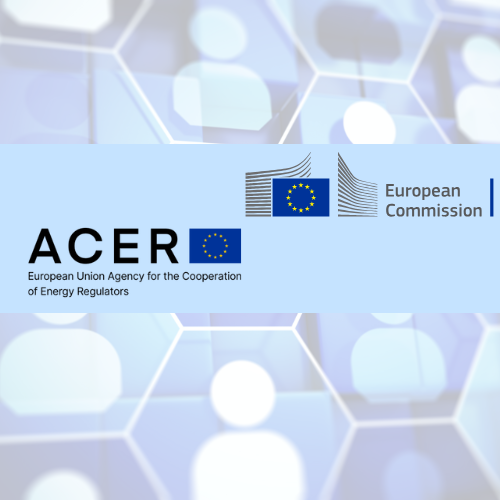Joint industry association response to the proposed EMIR 3 changes put forward by MEPs in the EU Parliament
As a follow up to their 29 June 2023 industry response (click here), the JEAG consisting of BDEW, EFET, Eurelectric, Eurogas, International Association of Oil and Gas Producers (IOGP), and Verband Kommunaler Unternehmen (VKU) have issued an updated joint industry response to the proposed EMIR 3 changes put forward by MEPs in the EU Parliament related to the EMIR clearing threshold (EMIR CT).
At the heart of the response, members of the JEAG expressed extreme concern over proposed changes to the EMIR CT under Article 10 noting that it would have “a series of unintended consequences which would be negative for the liquidity and functioning of energy markets, the competitiveness of EU non- financial firms [NFCs] and ultimately customers.”
The JEAG note three observations regarding MEPs proposed EMIR changes as follows:
[1] Removing EMIR hedging exemption is counterproductive to Europe’s energy transition and will lead to increase costs and reduced liquidity.
- The proposal by MEPs to delete hedging exemptions will increase costs by imposing upon non-financial firms a mandatory clearing and collateralisation obligation under Article 10 of EMIR. This will have a particularly direct impact on renewable operators who need to hedge their long term and non-standardised market price risks with tailored OTC derivative transactions (thus ensuring stable revenues).
- Consequently, energy firms will make fewer investments into renewables as the mandatory margining and collateralisation requirements will incentivize firms to invest in other opportunities.
[2] Centralized hedging by energy firms reduces risk, makes the energy system more secure and helps customers. It should not be discouraged.
- Hedging is vital and discouraging it can be damaging. Energy markets change fast, hedging helps manage those changes and it also leads to less overall volatility. It is clearly a risk reducing activity.
- If energy suppliers are unable to hedge their power and gas price risk on energy derivatives markets, inter alia, to guarantee an energy supply to end consumers at fixed prices, this will negatively impact households and industrial consumers.
- In the end, these customers will pay the substantial costs of energy firms’ inability to hedge their price risks as they will face increased energy costs.
[3] Applying a global scope to the Clearing Threshold reduces the competitiveness of EU firms outside Europe and increases the cost of trading in Europe.
- Proposals to include transactions undertaken by any part of a corporate group worldwide in the EMIR CT calculation damage the competitiveness of European firms in the global marketplace. This, in turn, is detrimental to European growth.
- A more focused scope covering EU products, EU venues and EU entities would remove these downsides.
Consequently, the JEAG urge the Members of the European Parliament (MEP) to reject amendments 26, 55, (partially) 56, 57, 248, 299, 300, 301 305, 306, 307 and 308 and to revert to the EU Commission’s (EC) proposal of a centralized hedging regime.
 RegTrail Insights
RegTrail Insights
While there continues to be industry push back on the proposed EMIR 3 changes, there is limited signals from EU Parliament that they are prepared to modify the current proposed changes.
Should the current EMIR 3 changes become law, energy firms will need to dramatically review and update their current EMIR reporting and monitoring capabilities to meet new threshold calculation requirements.
Moreover, the potential risk for many NFC- firms (i.e. those who are currently are below the EMIR clearing thresholds), to become an NFC+ (i.e. a firm officially deemed to be above the threshold) or Financial Firm (FC) will be subject to new margining and collateralisation requirements, both of which will require significant financial considerations and operational changes.
While industry engagement with the EU Parliament continues through the rest of the 2023, it is not known whether the EU Parliament has appetite to modify or remove any of the current proposed EMIR changes.
Firms should however plan for the worst-case scenario and build in updates to their EMIR threshold calculation models and related governance and controls assuming the current legislation passes in the current draft form.
We review the following themes in more detail below:
- Reject fundamental changes to EMIR clearing threshold (EMIR CT) for non-financial counterparties and instead update EMIR CT methodology and hedging exemption.
- Reject unfavourable changes to calculation of clearing thresholds for Non-Financial Counterparties and (small) Financial Counterparties.
- Margin transparency and predictability.
- Uncollateralised commercial bank guarantees as eligible collateral.
- Reporting and exemption from reporting of intragroup transactions.
- NFCs as direct clearing members.
- Definition of intragroup transactions for the purpose of exemptions from clearing and margining.
- Risk mitigation techniques for uncleared trades.
- NFC+ implementation period and ring-fencing of bilateral collateralisation requirement.
- Transitional provisions for NFCs+.
- Information sharing between ACER and ESMA.
- ESMA Report on NFCs activity.

-Aug-01-2025-10-54-18-1536-AM.png)
